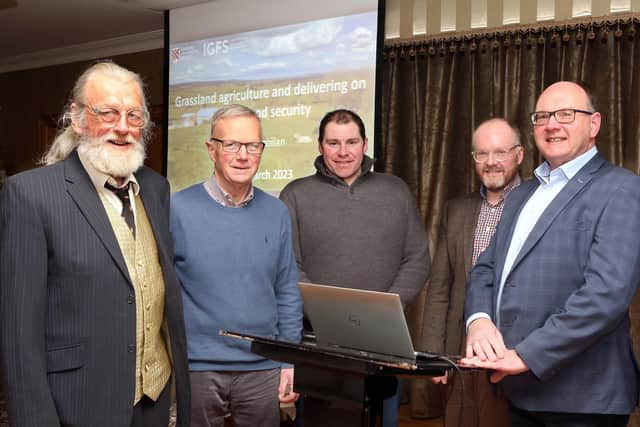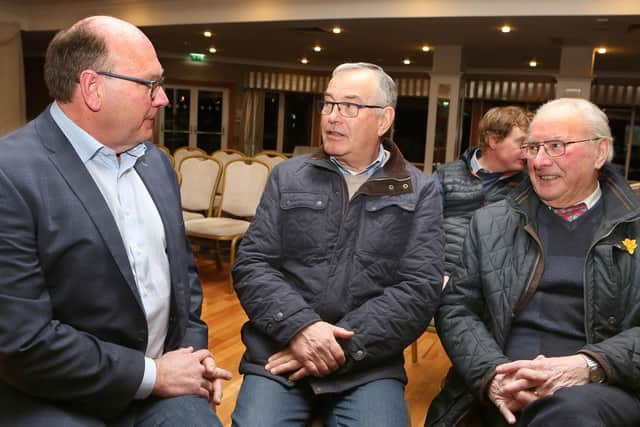Professor Nigel Scollan is guest speaker at final meeting of winter season for Fermanagh Grassland Club
and live on Freeview channel 276
He outlined the work of the Institute and referred to food security and 21st century societal challenges, UK food security, the global demand for livestock and challenges in livestock systems, the environment impact, especially from methane, as well as working towards net zero.
The institute addresses key international challenges with world-leading excellence in food integrity, agriculture and climate change, nutrition and preventive medicine and data innovation and enabling technologies.
Advertisement
Advertisement
The three main aspects of the work of the institute of planetary health, food systems and human health are all interconnected. Already some ground-breaking reports have been produced, including the Food Fortress report leading to the formation of the Food Quality Assurance Scheme and tackling food fraud.


The institute works in partnership with many corporate and scientific companies leading to world class excellence. For example, the institute has achieved first in the UK in the field of agriculture, food and veterinary sciences, first in the UK in agriculture, fourth in the UK in food science and ninth in the UK in biological sciences.
Professor Scollan, discussing food security, said it is much more than just increasing production, but also about producing the right safe and nutritious food that meets people’s dietary needs.
He illustrated how farmers and growers will be challenged to produce as much food in the next 50 years to meet the growing world population, as they did in the last 500 years. He said it is estimated that, by 2050, the world’s population is expected to reach 9.8 million with almost 70 per cent projected to live in urban areas.
Advertisement
Advertisement
To compound this, Professor Scollan said that climate change may reduce agricultural production by two per cent each decade, while demand increases by 14 per cent. Around 40 per cent of the world will develop unfamiliar climates.


Yet most of the increased food production will be taking place on marginal and more fragile lands, where yields are variable.
Another problem of 21st century living is that 25 per cent of the food is wasted and there is the also the problem of food fraud. Professor Scollan said food demand would be met by producing more responsibly and by managing demand.
Referring to controlling carbon emissions, he highlighted the work of the ARC Zero project which calculates gross emissions, gross sequestration and net carbon position, soil fertility and soil, nutrient and pesticides run off risk maps and involves partners such as AFBI, AgriSearch, Devenish, QUB and SRUC.
For all farmers, one of the exciting projects is the Soil Nutrient Health Scheme, which will be continuing in Fermanagh this coming winter.